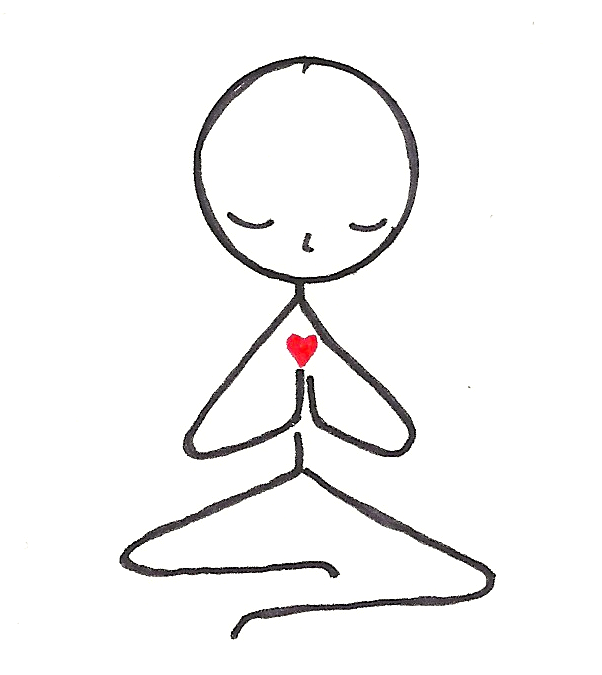
Be Nice To Yourself: Learning About Self-Compassion
By Felicia Levy, LCSW
Be Nice To Yourself! By now you’ve probably heard that having good self-esteem is essential to your personal and professional well-being. Recent studies have shown that there is an additional tool – self compassion – that might be even more effective in helping you lead a balanced life. Self-compassion – it sounds simple enough, right? Let’s look at what all the buzz is about, what self-compassion is and what it isn’t.
Let’s first differentiate between self-esteem and self-compassion. Self–esteem describes a person’s overall sense of self-worth or personal value – essentially it’s how much we like ourselves. Sometimes self-esteem is developed through a comparison to others, or even a comparison to our own success or failures. This can cause a lot of pressure to have ongoing success, to be ‘better than’ others, and may result in a rollercoaster in self-esteem.
How can we feel good about ourselves without needing to feel better than others and without being dependent on our own self-imposed pressure for ongoing accomplishments? One answer is to develop self-compassion. Self-compassion is how you treat yourself, with kindness, which is not to be confused with over-confidence or narcissism. In fact, self-compassion is the opposite of overconfidence. By acknowledging that we are not perfect, it makes us real and keeps us connected. It’s gentle, supportive and non-judging, even when you make mistakes!
There are many benefits to developing self-compassion. Studies have shown a positive correlation between self-compassion and overall wellbeing and happiness, a decrease in anxiety, depression, shame, and fear of failure. When we’re kind to ourselves, we can experience positive, healthy feelings. There is an actual chemical component to what can happen when we practice self-compassion. Our body releases oxytocin, a feel-good hormone that reduces the hyped up feeling of adrenaline, anxiety and stress.
Self Compassion:
Self-compassion can also help people reach their goals. Studies show that when people have self-compassion and have failed at a task, they’re more resilient and likely to bounce back, pick themselves up and try again. Self-compassion has been shown to help people remain motivated to exercise, quit smoking and to stick to their diets. Self-compassion is not a lack ambition yet is a change in how you motivate yourself in a positive, kind and healthy way.
One more benefit to developing self-compassion is improved relationships. People with self-compassion have more balanced relationships with less conflict and an increased sense of connection. When we are feeling good about ourselves, we are more motivated to admit and apologize for mistakes. This creates vulnerability by admitting we are not perfect, which can strengthen relationships. How you treat yourself directly reflects how you let others treat you. If you’re mean to yourself, you’re more likely to accept others being mean to you. On the flip side, if you’re kind to yourself, you will show others this is how you expect to be treated.
According to self-compassion pioneer Dr. Kristin Neff, she describes the three components that make up self-compassion:
- Recognize that we’re struggling while we’re struggling. This is also referred to as mindfulness. Instead of fighting against negative thoughts or trying to distract yourself from them, simply notice the thoughts, without placing any judgment on them.
- Understand we all share a common humanity and acknowledge that we’re not alone. Know that others feel the same and we are not the only ones who struggle. Appreciate that all humans have periods in which they experience negative thoughts and feelings. We all feel inadequate and imperfect at times.
- Lastly, we need to stop beating ourselves up and instead develop a kind response to ourselves. Instead of putting yourself down, find some phrases that resonate with you. Examples such as: I did the best I could; I can learn from this experience; other people have made similar mistakes, etc.
How do we begin to develop self-compassion? Set the intention that self-compassion is something you want to try. The first step is to actively notice the negative thoughts in your mind. Notice the voice in your head that is too critical or judgmental. Turn to mindfulness. Just observe your thoughts without judgment. The second step, no matter the issue, is to remind yourself that you’re not alone, that others have had similar feelings, thoughts or experiences. Lastly, be kind to yourself. Commit to treating yourself like you would your best friend. Give yourself permission to be imperfect. There are many ways to get started with practicing self-compassion. One time per day, think about a difficult situation you are dealing with. Try journaling about each of the three components of self-compassion as it relates to your concern. Another idea is to set aside time each day, even if just 5 minutes, to remind yourself about self-compassion. There are also many guided meditations that can help you develop this practice. A great resource is Dr. Neff’s website: http://www.self-compassion.org/ which has many exercises, guided meditations, and other resources on self-compassion.
Lastly, connecting with a counselor is always a great way to have an objective, supportive relationship with a trained professional who can guide you. Don’t hesitate to reach out to InnerVoice Psychotherapy & Consultation if you’d like to schedule an appointment with a counselor.